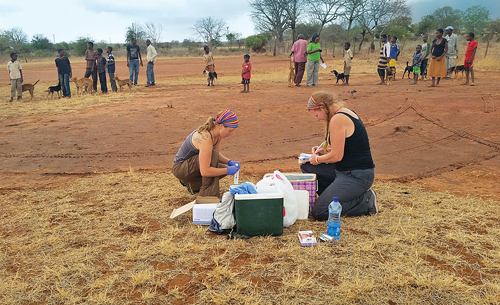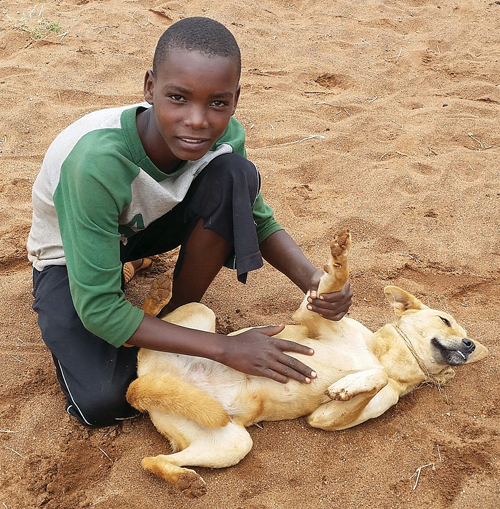Caring for animals on the North Fork and beyond

Most people look forward to spending their precious vacation days enjoying rest, relaxation and the occasional cocktail, but that’s not the case with North Fork Animal Welfare League director Gillian Wood Pultz.
Twice a year since 2010, Ms. Wood Pultz has boarded a plane to Mexico to help spay and neuter 1,600 animals in just six days.
But this year, she decided to take her efforts even further away — about 8,000 miles, in fact — to Africa.
Armed with a sleeping bag and mosquito net, Ms. Wood Pultz flew from Mexico to Kenya on Aug. 19 to volunteer with the African Network for Animal Welfare (ANAW), which had been working to stop the Kenyan government from using what Ms. Wood Pultz called an inhumane euthanasia practice in an effort to control the spread of rabies.
“The Kenyan government decided that in order to keep rabies at bay in humans, it had to reduce the population of stray dogs,” Ms. Wood Pultz said. “ANAW got involved and started a vaccination campaign.”

Ms. Wood Pultz joined a group of helpers from around the globe to vaccinate nearly 2,000 animals against rabies in just five days, sleeping on the roof of a building with other volunteers in order to save money.
The vaccinations replaced the Kenyan government’s use of strychnine, a form of poison that had been used to kill hundreds of stray dogs until March, when ANAW stepped in, according to the Kenya Society for the Protection and Care of Animals.
“It’s an oral poison, and it is a really harsh form [of euthanasia] — a horrible way to kill dogs,” Ms. Wood Pultz said.
NFAWL, which operates shelters in Riverhead and Southold towns, donated medical supplies and about 400 soon-to-expire vaccines that otherwise would have been thrown out, she said.
To help instill animal welfare, Ms. Wood Pultz said, “it is hugely important that everyone works together. We need cooperation and collaboration locally, nationally, and globally.”
She said her mission in Kenya went well beyond simply vaccinating animals.
“We want to change the way owners think of their animals,” she said.
Ms. Wood Pultz explained that dogs are treated as agricultural animals in that part of the world and frequently used to protect homes and herd cattle.
“Dogs are not considered pets. They are not allowed in the house,” she said. “It was so clear to me that they just didn’t know they were supposed to pet their dogs; they really weren’t sure.”
Ms. Wood Pultz said she set out to change that mindset.
“We started teaching the kids to rub their dog’s tummy,” she said. “One here, another there — and then, all of a sudden — all these kids had their dogs rolling in the field on their backs, wagging their tails.
“All you need is one of them to really get it and it can change an entire community,” she said.
Second photo credit: Gillian Wood Pultz said the highlight of her trip was helping children and families learn how to better care for their dogs, which included a tutorial on belly rubs. (Courtesy photo)









